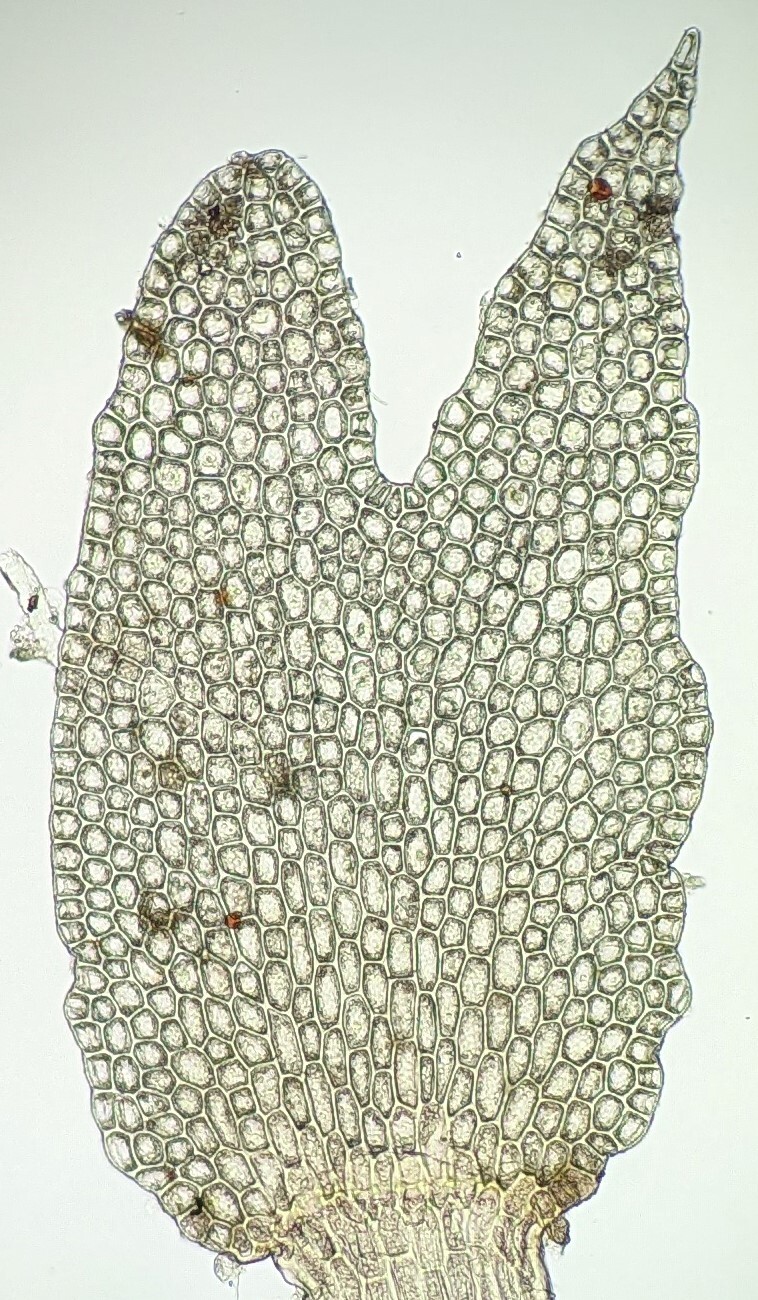Herbertaceae
Terrestrial or lithophytic, rarely epiphytic (not in Victoria), dioicous. Asexual reproduction rarely by fragmenting (not in Victoria) or caducous leaves (not in Victoria). Stems differentiated into microphyllous prostrate rhizome-like axes that give rise to erect simple or irregularly branched stems with two ranks of lateral leaves and a single rank of underleaves; branches emerging from main stem from axils of lateral leaves or underleaves and with a collar of tissue at base, rarely emerging abaxial to modified lateral leaves with a reduced number of lobes and without a collar of tissue at base (not in Victoria). Lateral leaves remote to imbricate, incubous to transverse (not in Victoria), 2–4-lobed, oblong to ovate in outline, often falcate, sometimes dentate basal to lobes (not in Victoria); lobes triangular, entire, often differing in size. Underleaves similar in form to lateral leaves, similar in size or slightly smaller than lateral leaves; leaf cells hexagonal or quadrate to oblong-hexagonal, more elongate near centre or basal centre, often forming a distinct vitta forking and extending into lobes (not in Victoria), smooth to striolate, firm- to evenly thick-walled, without or with large confluent trigones (not in Victoria), with up to 20 smooth and homogenous (not in Victoria) or granular-botryoidal, spherical to ellipsoid or ovoid oil bodies. Rhizoids in fascicles on flagelliform branches, without peg-like internal thickenings, hyaline. Androecia on main stem or branch, with bracteolar antheridia, usually with 8 or more pairs of bracts and bracteoles, each usually with 2–4 antheridia, each rarely with 1 (not in Victoria) or up to 6 (not in Victoria) antheridia. Sporophytes terminal on main stem or branch, surrounded by a perianth; perianth 3-keeled, ovoid to fusiform, with mouth 6–9-lobed, each lobe entire, dentate or ciliate (not in Victoria). Capsule globose to ovoid, 4–10-stratose, dehiscing by 4 valves, becoming elevated well beyond perianth; elaters present, bispiral or rarely 3-spiral (not in Victoria); spores spherical, punctate to minutely papillose or spinose, brown or orange-brown.
Two genera and 45 species mostly in temperate regions of the Southern Hemisphere, but in most moist regions of the world (Schuster 2000; Söderström et al. 2016); one genus and species, Triandrophyllum subtrifidum (Hook.f. & Taylor) Fulford & Hatcher, in Victoria.
Schuster, R.M. (2000). Herbertaceae, Austral Hepaticae, Part 1. Nova Hedwigia 118: 86–99.
Söderström, L., Hagborg, A., von Konrat, M., Bartholomew-Began, S., Bell, D., Briscoe, L., Brown, E., Cargill, D.C., Costa, D.P., Crandall-Stotler, B.J., Cooper, E.D., Dauphin, G., Engel, J.J., Feldberg, K., Glenny, D., Gradstein, S.R., He, X., Heinrichs, J., Hentschel, J., Ilkiu-Borges, A.L., Katagiri, T., Konstantinova, N.A., Larraín, J., Long, D.G., Nebel, M., Pócs, T., Puche, F., Reiner-Drehwald, E., Renner, M.A.M., Sass-Gyarmati, A., Schäfer-Verwimp, A., Moragues, J.S., Stotler, R.E., Sukkharak, P., Thiers, B.M., Uribe, J., Váňa, J., Villarreal, J.C., Wigginton, M., Zhang, L. & Zhu, R. (2016). World checklist of hornworts and liverworts. Phytokeys 59: 1–828.
 Spinning
Spinning